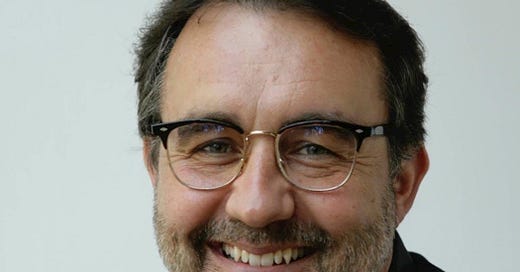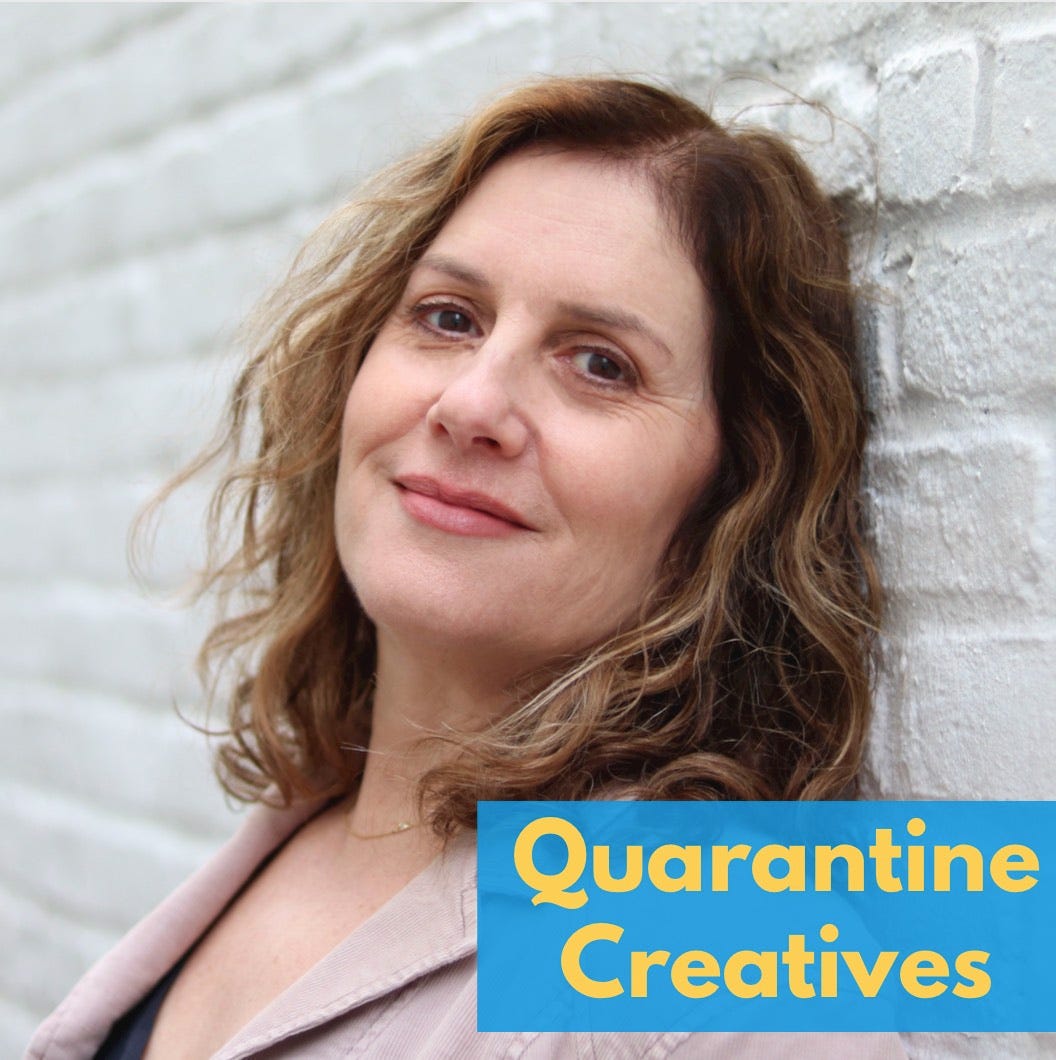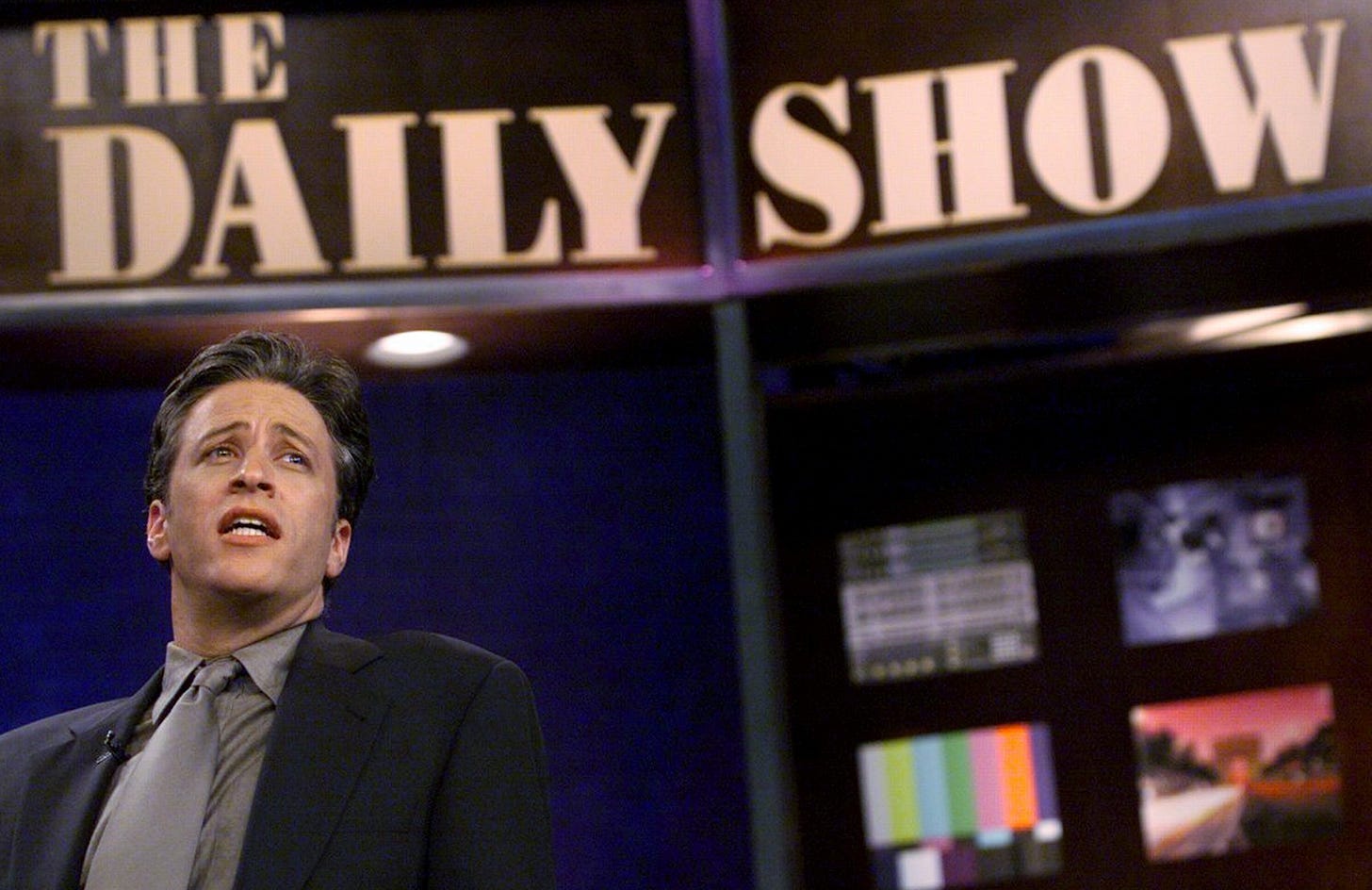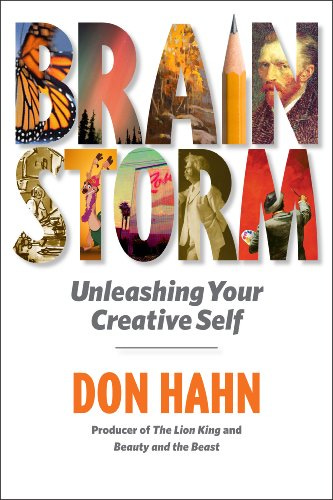Welcome to the Quarantine Creatives newsletter, a companion to my podcast of the same name. This newsletter is delivered to inboxes every Sunday morning. If you like what you read here, please consider subscribing for free:
A Fresh Start
It’s hard to believe that we are just a few days away from inaugurating Joe Biden as the 46th president of the United States. Biden’s victory feels like it happened years ago, although it was within the last two months. His inauguration has never quite felt like an inevitability, but I hope that we have seen the last of the political violence that was on display at the Capitol.
These last four years have been a true test of our nation, and this last year in particular has really put a strain on us all. These times have also given us the chance to reflect on what we truly value and on who we want to be moving forward, as individuals and as a country.
I look forward to the day when the pandemic can be under control, we move towards greater equality for all people, and we can start rebuilding. May this week bring you and yours a fresh start and a chance to renew.
Episode 68- Kahane Cooperman
On Monday’s show, I had a really great talk with filmmaker Kahane Cooperman. She has been making documentaries for a long time, although she took a detour for 18 years as a producer on The Daily Show. She is now back making documentaries, and her latest project is one that really affected me personally. The Antidote is streaming on Amazon Prime and it looks at kindness, decency, and the power of community. Here’s the trailer:
Kahane was brought on to this project in 2018. Her co-director John Hoffman received funding for a film based on a one word premise, kindness, and was seeking a partner. At the time, it was a very open ended prompt, but it was one that resonated with Kahane:
“I was at that point pretty concerned and upset by this pervasive feeling of crumbling civility all over. I felt ill at ease with it all. This doesn’t feel right, I don’t recognize it. Not that I saw this country as being a perfect place by any means, but I didn’t think of it as a mean hearted place. And what I was seeing was really, really upsetting, so I thought the opportunity to explore kindness, although it was a blank slate, that it was an especially interesting time to explore that aspect of being human and what that means in a civilized democracy.”
While the film is a documentary, it doesn’t follow a traditional story arc or narrative form. I found it to be more of a mood piece or a meditation on the idea of empathy, which made it really powerful. I compared the experience of watching it to that scene in How the Grinch Stole Christmas where you watch the Grinch’s heart expand so large that it breeches the X-ray machine. Kahane described that feeling as intentional:
“I tell people who are gonna see it ‘just let it wash over you.’ Even though there’s nine separate stories, and we all wanted each story to be powerful, the film is really about the cumulative effect of all of those stories together and the chorus that they create. The sum is greater than the parts. We hope the parts are all moving and compelling, but it’s really how they work together and how these voices, even though they’re from separate stories and different parts of the country, they really do start speaking to elements in all the stories.”
Kahane also noted that, while the premise of the film is kindness, in exploring that topic, unkindnesses like racism, homelessness, and homophobia also get addressed. She described that dichotomy:
“A lot of people have a very emotional response to the film, and it’s not just because they’re seeing people be kind and nice in their communities. It’s because they’re being intentionally kind within their communities in the face of these unkindnesses. It’s that relationship, that acknowledgment, that there are so many problems and what do we do about it and whose responsibilities are they? We’re focusing on the solution, but we’re doing so while acknowledging the problems.”
I also wanted to talk to Kahane about her experience as a producer on The Daily Show. She was one of the people there at the very beginning of the show (working alongside Lizz Winstead, who I also spoke with recently). She described to me how things changed after first host Craig Kilborn departed the show and Jon Stewart was hired:
“When Jon Stewart came, he looked at what we had been doing and he just said your targets are all wrong. Your targets shouldn’t be the people with no voice, which were these fringey, quirky stories that we were doing. The targets need to be the people that have a voice, which were the politicians, which was the media. That’s when the gears really, really started moving in a major way and people started looking at us differently.”
Within a year or two of Jon taking over, it was clear that The Daily Show was becoming a key player in our political discourse. Kahane described her husband’s reaction to seeing his wife’s cable comedy show suddenly become so influential:
“He worked for Dateline for many, many years, including when I first started off at The Daily Show, and he said people used to watch Dateline for the news and The Daily Show for laughs, and now they’re just laughing at Dateline and watching The Daily Show for news. I do think it spoke to the shift in the paradigm of how people were getting their news.”
I really cannot recommend The Antidote highly enough. Go stream it on Amazon Prime today, and if you haven’t yet, take a listen to my full conversation with Kahane.
Episode 69- Don Hahn
Don Hahn is one of my filmmaking heroes, in part because he has mastered the art of reinvention, which can be very difficult in this industry. He began his career at Disney Animation, producing classic films like Beauty and the Beast and The Lion King. He then made a pivot to producing and directing documentaries, including many of the films under the Disney Nature brand. He’s also an author that’s written several books on everything from animation history and technique to creativity.
His most recent documentary Howard is now streaming on Disney+ and it looks at the life and career of lyricist Howard Ashman, who cowrote the music for The Little Mermaid, Beauty and the Beast, and Aladdin with Alan Menken.
The film traces Howard’s career path, beginning as an actor, a book editor, an artistic director at a small theatre in New York, and then eventually a lyricist. He was a musical theatre major and brought a wealth of knowledge about what worked well in dramatic storytelling to his projects. Roy E Disney compared Howard to his uncle, Walt Disney; a brilliant creative mind that could help others see his vision. Don worked with Howard on Beauty and the Beast and he described that experience to me:
“You better bring your A-game when you worked with him because he was like a trial attorney, like a really good attorney, able to support it with evidence and tell you why his ideas were well founded. And they were, even though you might disagree with them. He was somebody who was in the trenches with us leading by ideas and by testing ideas and by pushing us to do our best work. He wasn’t alone in that, but Howard was a catalyst, he was the match in the gasoline tank. He really helped that whole time come to fruition by his input.”
Don made several creative choices in the film that we discussed at length in the interview. The visual treatment of the story was almost entirely archival stills, and in a few occasions, archival video. Like a traditional documentary, the story is told using interviews with important people in Howard’s life, including his mother, sister, and partner, as well as his collaborators at different phases of his career. However, none of these guests are seen on camera in a traditional talking head shot. Instead, Don just weaves their voices under the archival stills and video. He explained this decision to me:
“When I didn’t have a camera there and I didn’t have lights and makeup, people opened up a lot more. So from Jeffrey Katzenberg, from Roy Disney, from Howard’s family, I got much more vulnerable interviews by sitting in a big overstuffed chair with a microphone, because five minutes in, you forget the microphone is there and you’re just having a talk.”
Don has written several books over his career, including 2011’s Brain Storm: Unleashing Your Creative Self, which offers his take on the creative process. For me, this pandemic has been a time of introspection and a chance to think about what really drives me creatively, so I was excited to hear Don’s take on the subject. When looking at creative work, Don described to me the importance of being open to the world around us and not solely focusing on our chosen craft:
“I think when we’re growing up particularly, we place ourselves or are placed in a lot of boxes. You have to decide early in life what you want to do. You want to be a dentist, you want to be an architect, you want to be an office administrator. And those boxes can hamper us creatively for our whole life. So we can break out of some of those things and just say my chosen field of creativity, whether it’s being an actor, or a dancer, or a chef, or whatever, relies on me opening my head and traveling and filling my bucket with inspirations from around the world.”
He went on to talk about how he had learned these lessons early in his career, when he overlapped with many of the artists that had worked directly with Walt Disney, like the legendary Nine Old Men:
“The people I worked with that worked with Walt Disney, they lived big lives. They weren’t animation fans, because they invented animation. But they traveled and they wrote. Marc Davis, the great animator, traveled with his wife to New Guinea in the 50s when it was difficult. Ollie Johnston was into steam trains, Ward Kimball was into steam trains and Dixieland Jazz. Frank Thomas played amazing piano and Milt Kahl was a fly fisherman. They had these big, expansive lives that then they could bring back into their creative lives. And I think so often we get into this small little place in our lives where we exist, and that’s not at all the way that these men and women were, and I find that really inspiring.”
Don connected the big lives that successful creative people live to our current moment, where it is easier than ever to get stuck in a bubble and rarely have to look outside of that:
“In a modern, more digital age, the world tries to give us what we want. So if I like Thai food, I’m gonna get a lot of ads and things for Thai food. If I like a certain shirt, I’m going to get a lot of shirts from that manufacturer. And I think that’s absolutely the wrong thing to do in your personal life, because you want to go out and be uncomfortable. You want to travel. You want to go to a place where they’re eating different things and singing different songs and experiencing life in a different way, because that will slap you in the face and wake you up to new ways of existing.”
Another piece of creative advice that Don shared is to try to tune out the news and other outside distractions, especially when in a creative mode:
“I read a lot of biographies and try to understand what other people have done. So many great people that I admire have such a unifying thing in their lives, which is they really are able to block out distractions and really are able to shut the world out when they need to. Even to some people to the point of saying ‘I’m not going to go out to lunches anymore, I’m not going to do whatever, because I have this task ahead.’ I have writer friends like that who just say ‘listen, I’m writing over the next three months, stay away from me.’ And I admire that.”
The full interview with Don is really worth your time. We talk about Disney and Howard Ashman a good amount, but I found his takes on creativity and reinvention to be especially relevant regardless of your chosen career.
What’s Coming…
On Monday, I will be talking with director Ray Smiling. He created a series of short films that were all shot remotely during the pandemic called Khaki is Not Leather. The films explore the role that technology has played on love, intimacy, and sex during this time of social isolation. Ray’s day job is as a creative director at an ad agency, so we also discuss the influence of advertising on our lives and how media is created.
On Thursday, my guest will be the incredible Sonia Manzano who played Maria on Sesame Street for more than 40 years and was also a writer on the show. We will chat about her time on the Street, plus her new children’s book that explores our shared humanity, and she’ll preview her new animated series for PBS.
If you have questions, comments, thoughts, ideas, or anything else that you’d like to share, please feel free to email me anytime: hracela@mac.com
If you’re an Apple Podcasts user, please consider leaving a rating or review for Quarantine Creatives. It only takes a minute, but it helps bring in new listeners.
And please consider sharing this with a friend that you think might enjoy reading this, or better yet, share it on social media so you can tell hundreds of friends!
If you’ve missed past issues of this newsletter, they are available to read here.
Stay Safe!
Heath








